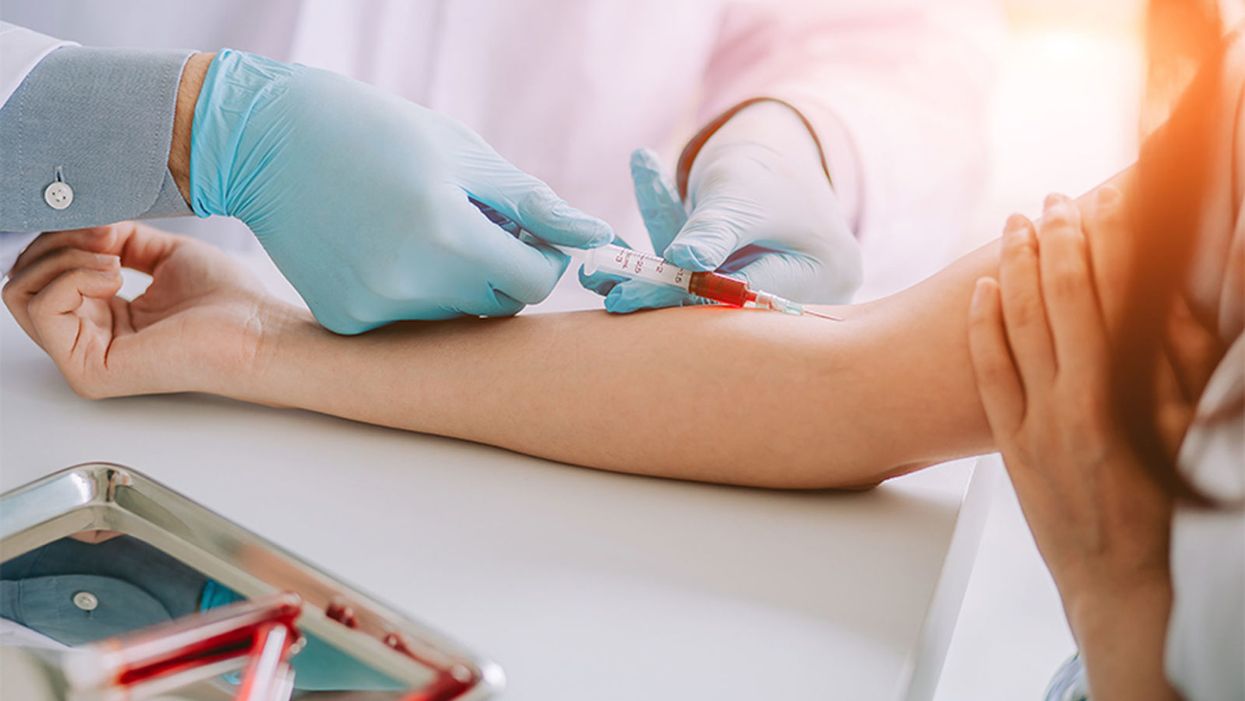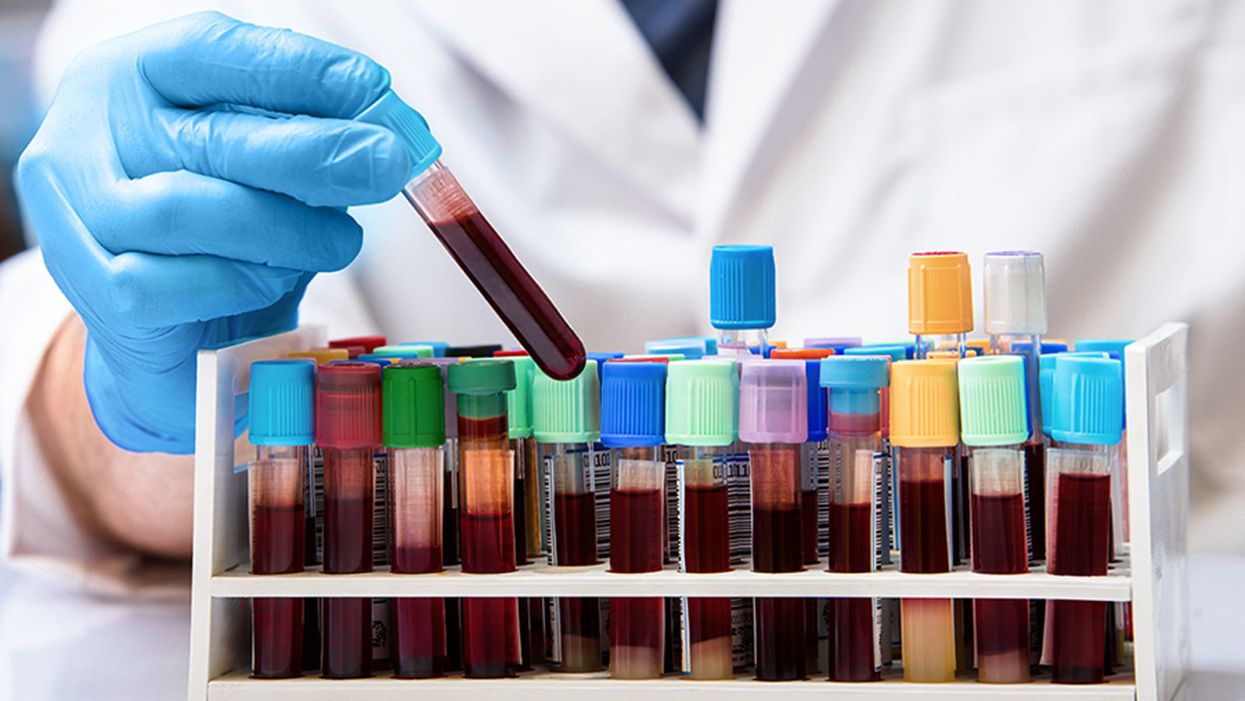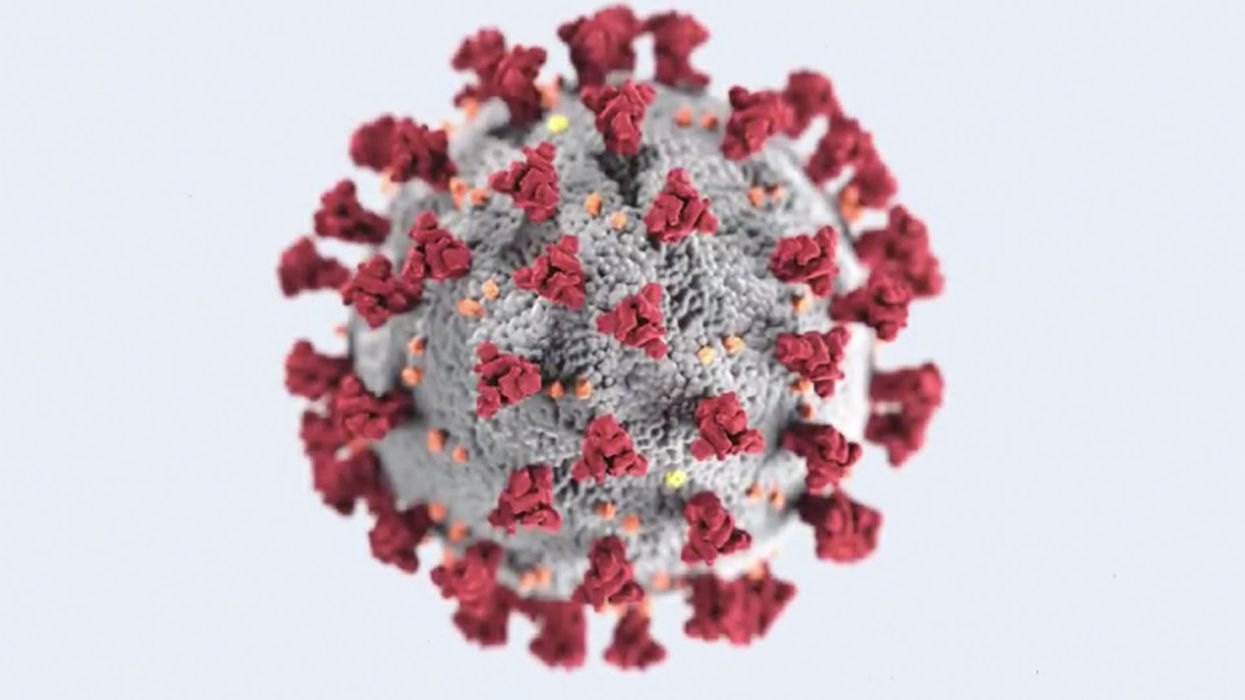BREAKING: The First U.S. Test to Detect If a Person Has Potential Immunity to COVID-19 Was Just Developed
Testing for immunity to COVID-19 will allow frontline health workers to safely go back to work, knowing they can't spread the disease.
While testing for COVID-19 ramps up around the country, there's another kind of testing that will prove equally important to combating the pandemic: one that can detect whether someone has already been infected.
"The idea is that this assay can be established anywhere in the world following these steps."
Why is this important? As former FDA commissioner Scott Gottlieb wrote in today's Wall Street Journal: "If a sizable portion of a local community has some protection, authorities can be more confident in relying less on invasive measures. Once deployed, serological tests are cheap, straightforward, and easy to scale."
Now, a microbiology lab at the Icahn School of Medicine at Mount Sinai, led by Dr. Florian Krammer, has just announced the development of this serological test. Leapsmag spoke with Daniel Stadlbauer, a post-doctoral fellow in the lab who helped lead the work.
Is yours the first serological test available?
They did something similar in South Korea. In the U.S., it's the first of these tests.
How close are we to rolling this test out to the public?
Last week, we started this process and we finished the protocol today. Mount Sinai is trying to roll this out in the next few days in the clinic to see which patients have been infected with coronavirus recently or have been infected at all.
The protocol we uploaded today can be used as a template for other research labs or hospitals to follow the steps we provided and they should then be able to set up the antibody test. The idea is that this assay can be established anywhere in the world following these steps.
Are there any bottlenecks to getting this rolled out – supply chain or regulation obstacles?
There are no regulations that say you can't do it. Research labs and hospitals for sure can do it. I'm not aware of supply chain issues because you need basic lab equipment and materials, but I don't think those are in short supply right now.
How does the test work?
People coming to the hospital who are suspected to have infection with coronavirus, their blood gets taken routinely. This blood can be used for our test, too. The test will tell you if this person has antibodies against coronavirus. You can also test the blood of people who are not currently sick to see if this person was infected, say, a month ago. If there are antibodies in the blood, you can say this person is probably immune to getting it again.
It will be essential workers who need to be tested first, like nurses, firefighters, and doctors. It will be great to know that they would not put themselves or others at risk by going back to work because they cannot spread the disease.
"People probably cannot get reinfected once they mount a good immune response and have good antibody levels."
How soon after infection does the test detect if you have antibodies?
Usually after 7 days of infection.
How long do the antibodies last to confer immunity?
Those studies need to be done – right now it's unclear. People probably cannot get reinfected once they mount a good immune response and have good antibody levels. How long those level last still needs to be investigated. But they won't get reinfected in the next, I would say, six months.
How accurate is the test?
Very accurate. The advantage – which is bad for us but good for the test – is that humans have no baseline immunity to this coronavirus. It means that when you have not been infected, you have pretty much no antibodies, which is why it can spread so easily. But once you have antibodies in your blood, we can detect them and it's a clear difference between antibodies or no antibodies.
Where should hospitals and labs go for more information on how to build their own tests from your work?
They should check out our lab website to find the detailed protocol to download.
If I am a person who just wants to take this test to find out if I've already been infected, what should I do?
It will be done soon in the clinical setting. I don't know yet how widely it will be available. The more research labs and hospitals that set up this testing, the more people who can be tested in the future.
Kira Peikoff was the editor-in-chief of Leaps.org from 2017 to 2021. As a journalist, her work has appeared in The New York Times, Newsweek, Nautilus, Popular Mechanics, The New York Academy of Sciences, and other outlets. She is also the author of four suspense novels that explore controversial issues arising from scientific innovation: Living Proof, No Time to Die, Die Again Tomorrow, and Mother Knows Best. Peikoff holds a B.A. in Journalism from New York University and an M.S. in Bioethics from Columbia University. She lives in New Jersey with her husband and two young sons. Follow her on Twitter @KiraPeikoff.
Blood Donated from Recovered Coronavirus Patients May Soon Yield a Stopgap Treatment
Antibodies from the blood of recovered patients is being tested as a stopgap treatment.
In October 1918, Lieutenant L.W. McGuire of the United States Navy sent a report to the American Journal of Public Health detailing a promising therapy that had already saved the lives of a number of officers suffering from pneumonia complications due to the Spanish influenza outbreak.
"These antibodies then become essentially drugs."
McGuire described how transfusions of blood from recovered patients – an idea which had first been trialed during a polio epidemic in 1916 – had led to rapid recovery in a series of severe pneumonia cases at a Naval Hospital in Massachusetts. "It is believed the serum has a decided influence in shortening the course of the disease, and lowering the mortality," he wrote.
Now more than a century on, this treatment – long forgotten in the western world - is once again coming to the fore during the current COVID-19 pandemic. With fatalities continuing to rise, and no vaccine expected for many months, experts are urging medical centers across the U.S. and Europe to initiate collaborations between critical care and transfusion services to offer this as an emergency treatment for those who need it most.
As of March 20, there are more than 90,000 individuals globally who have recovered from the disease. Some scientists believe that the blood of many of these people contains high levels of neutralizing antibodies that can kill the virus.
"These antibodies then become essentially drugs," said Arturo Casadevall, professor of Molecular Microbiology & Immunology at John Hopkins Bloomberg School of Public Health, who is currently co-ordinating a clinical trial of convalescent serum for COVID-19 involving 20 institutions across the US.
"We're talking about preparing a therapy right out of the serum of those that have recovered. It could also be used in patients who are already sick, but have not progressed to respiratory failure, to treat them before they enter intensive care units. That will provide a lot of support because there's a limited number of respirators and resources."
The first conclusive data on how the blood of recovered patients can help tackle COVID-19 is set to come out of China, where it was also used as an emergency treatment during the SARS and MERS outbreaks. On February 9, a severely ill patient in Wuhan was treated with convalescent serum and since then, hospitals across China have used the therapy on a total of 245 patients, with 91 reportedly showing an improvement in symptoms.
In China alone, more than 58,000 patients have now recovered from COVID-19. Casadevall said that last week the country shipped 90 tons of serum and plasma from these patients to Italy – the center of the pandemic in Europe – for emergency use.
Some of the first people to be treated are likely to be doctors and nurses in hospitals who are most at risk of exposure.
A current challenge, however, is that the blood donation from the recovered patients must be precisely timed in order to maximize the number of antibodies a future patient receives. Doctors in China say that obtaining the necessary blood samples at the right time is one of the major barriers to applying the treatment on a larger scale.
"It's difficult to get the donations," said Dr. Yuan Shi of Chongqing Medical University. "When patients have recovered from the disease, we would like to collect their blood two to four weeks afterwards. We try our best to call back the patients, but it's sometimes difficult to get them to come back within that time period."
Because of such hurdles, Japan's largest drugmaker, Takeda Pharmaceuticals, is now working to turn neutralizing antibodies from recovered COVID-19 patients into a standardized drug product. They hope to launch a clinical trial for this in the next few months.
In the U.S., Casadevall hopes blood transfusions from recovered patients can become clinically available as a therapy within the next four weeks, once regulatory approval has been received. Some of the first people to be treated are likely to be doctors and nurses in hospitals who are most at risk of exposure, to provide a protective boost in their immunity.
"A lot of healthcare workers in the U.S. have already been asked to quarantine, and you can imagine what effect that's going to have on the healthcare system," he said. "It can't take large numbers of people staying home; there's not the capacity."
But not all medical experts are convinced it's the way to go, especially when it comes to the most severe cases of COVID-19. "There's no knowing whether that treatment would be useful or not," warned Dr. Andrew Freedman, head of Cardiff University's School of Medicine in the U.K.
"There are going to be better things available in a few months, but we are facing, 'What do you do now?'"
However, Casadevall says that the treatment is not envisioned as a panacea to treating coronavirus, but simply a temporary measure which could give doctors some options until stronger options such as vaccines or new drugs are available.
"This is a stopgap option," he said. "There are going to be better things available in a few months, but we are facing, 'What do you do now?' The only thing we can offer severely ill people at the moment is respiratory support and oxygen, and we don't have anything to prevent those exposed from going on and getting ill."
Social distancing is a critical part of the strategy to defeat the novel coronavirus.
Kira Peikoff was the editor-in-chief of Leaps.org from 2017 to 2021. As a journalist, her work has appeared in The New York Times, Newsweek, Nautilus, Popular Mechanics, The New York Academy of Sciences, and other outlets. She is also the author of four suspense novels that explore controversial issues arising from scientific innovation: Living Proof, No Time to Die, Die Again Tomorrow, and Mother Knows Best. Peikoff holds a B.A. in Journalism from New York University and an M.S. in Bioethics from Columbia University. She lives in New Jersey with her husband and two young sons. Follow her on Twitter @KiraPeikoff.


